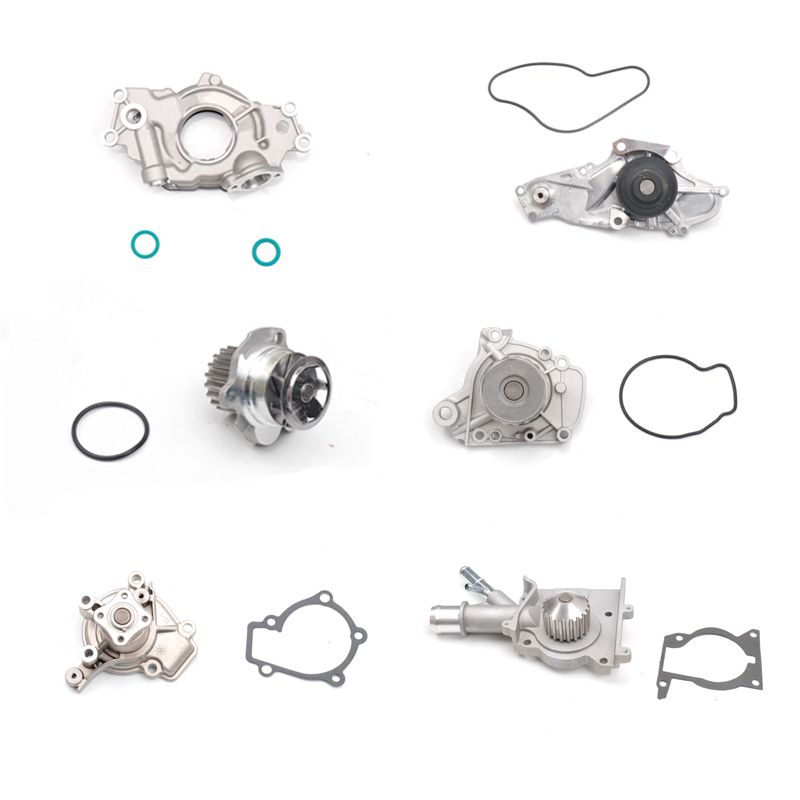Understanding Water Pumps: Types, Applications, and Benefits
2025-03-27
Water pumps are essential devices used to move water from one location to another, serving various industries and household needs. Whether for agriculture, construction, municipal water supply, or home use, water pumps play a crucial role in ensuring a consistent and efficient flow of water. Understanding how these pumps work, the different types available, and their applications can help in selecting the right one for specific needs.
What is a Water Pump?
A water pump is a mechanical device that moves water using different mechanisms such as centrifugal force, displacement, or pressure. It is commonly used to transport water from a lower level to a higher level or to distribute it within a system. Water pumps are powered by electricity, fuel, or even solar energy, depending on their design and application.
Types of Water Pumps
1. Centrifugal Water Pumps
Centrifugal water pumps operate by using a rotating impeller to create a flow of water. The impeller spins at high speed, generating centrifugal force that pushes water outward, increasing pressure and allowing the pump to move water efficiently. These pumps are widely used for irrigation, industrial applications, and residential water supply.
Advantages:
- High efficiency for large volumes of water
- Simple design with fewer moving parts
- Suitable for continuous operation
Common Uses:
- Municipal water supply systems
- Agriculture and irrigation
- Cooling systems in industrial facilities
2. Submersible Water Pumps
Submersible pumps are designed to be placed underwater, typically in wells, sumps, or tanks. They push water to the surface rather than pulling it, making them highly efficient for deep water extraction. These pumps are commonly used for boreholes, wastewater management, and dewatering flooded areas.
Advantages:
- Operates quietly due to being underwater
- Efficient for deep water applications
- Requires minimal maintenance
Common Uses:
- Well water pumping
- Flood control and drainage
- Sewage and wastewater management
3. Positive Displacement Pumps
These pumps move water by trapping a fixed amount and forcing it through the system. They are useful for applications requiring precise control of water flow. Positive displacement pumps are often found in industries where viscosity and pressure are key concerns, such as chemical processing and oil refining.
Advantages:
- Handles high-pressure applications
- Suitable for thick or contaminated fluids
- Provides consistent flow
Common Uses:
- Chemical and pharmaceutical industries
- Food and beverage production
- Oil and gas refineries
4. Diaphragm Water Pumps
Diaphragm pumps use a flexible membrane that moves back and forth to create suction and discharge water. These pumps are ideal for applications requiring gentle handling of water or other fluids. They are commonly used in agricultural sprayers, medical equipment, and marine applications.
Advantages:
- Can handle abrasive or corrosive liquids
- Self-priming and does not require manual priming
- Long service life with minimal wear and tear
Common Uses:
- Water filtration systems
- Agricultural spraying
- Medical and laboratory equipment
Applications of Water Pumps
Water pumps are used in a wide range of industries and settings, including:
- Agriculture: Farmers rely on water pumps for irrigation, ensuring crops receive adequate water supply. Pumps are used in sprinkler systems, drip irrigation, and water transfer from reservoirs or wells.
- Construction: Water pumps are essential on construction sites for dewatering flooded areas, removing excess water from foundations, and supplying water for concrete mixing.
- Municipal Water Supply: Cities and towns use large-scale water pumps to distribute water to homes and businesses through pipelines and reservoirs.
- Industrial Processes: Factories use water pumps for cooling systems, chemical processing, and wastewater management. Industries that require precise fluid movement also depend on specialized pumps for their operations.
- Residential Use: Homeowners use water pumps for well water supply, garden irrigation, and basement flood control. Booster pumps are often installed to increase water pressure in residential plumbing systems.
Key Benefits of Water Pumps
1. Efficient Water Management
Water pumps help regulate water distribution, ensuring that water reaches its intended destination with minimal waste. This is particularly important in drought-prone regions and for industries that depend on a steady water supply.
2. Increased Productivity
In agriculture and industrial applications, water pumps enhance efficiency by providing a reliable water source. Irrigation pumps help maximize crop yields, while industrial pumps improve production processes.
3. Cost Savings
Using a water pump can reduce labor costs associated with manual water transport. Additionally, modern energy-efficient pumps can lower electricity and fuel consumption, leading to long-term savings.
4. Environmental Benefits
Solar-powered and energy-efficient water pumps contribute to sustainable water management by reducing carbon footprints and conserving natural resources. Many pumps are also designed to handle wastewater, preventing pollution and promoting environmental health.
Choosing the Right Water Pump
Selecting the right water pump depends on several factors, including:
- Water Source: Determine whether the water will be drawn from a well, river, lake, or municipal supply. Different pumps are designed for different water sources.
- Flow Rate and Pressure Requirements: Consider how much water needs to be moved per minute or hour and the pressure required for the application.
- Power Source: Choose between electric, diesel, gasoline, or solar-powered pumps based on availability and operational cost.
- Pump Material: Depending on the water quality, materials such as stainless steel, cast iron, or plastic may be required to prevent corrosion and prolong pump life.
Conclusion
Water pumps are indispensable tools in agriculture, construction, industry, and everyday household use. From centrifugal and submersible pumps to diaphragm and positive displacement pumps, each type serves specific needs and offers unique benefits. Whether for large-scale irrigation, industrial processes, or home water supply, choosing the right water pump ensures efficiency, reliability, and cost savings. With advancements in technology, modern pumps continue to evolve, providing more energy-efficient and environmentally friendly solutions for managing water resources effectively.



